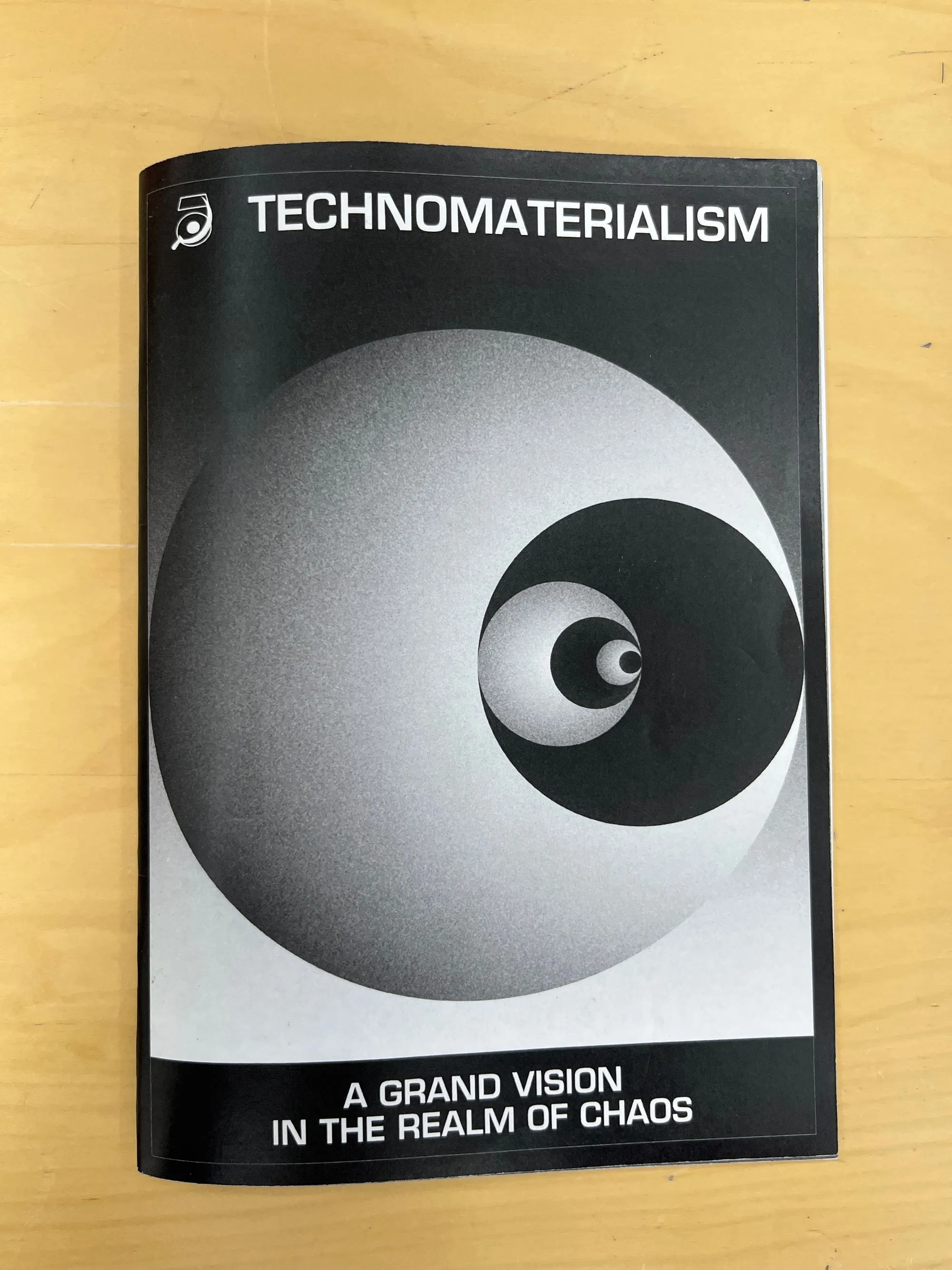Technomaterialism: A Grand Vision in the Realm of Chaos

Technomaterialism Zine #2 is a compilation of essays or articles that delve into various critical and thought-provoking topics related to the culture industry, club culture, labor, and societal issues. Each of the articles touches on different aspects of these subjects and is written by different authors. Here's a brief description of the writing :
"Late Payments as a Systemic Issue in the Culture Industry" by Technomaterialism:
discusses how creating a more sustainable payment culture in the cultural and creative sectors is essential and that cultural workers must recognize that their struggle against poor payment practices requires collective action.
"Negrophilia in Club Culture" by Mathys Rennela:
The essay explores how the industry capitalizes on Blackness, both during artists' lifetimes and post-mortem, and how it markets Black art as "authentically Black" to predominantly white audiences, using Blackness as a selling point. It also discusses the shallowness of club activism and the concept of Anglo-pessimism, which promotes the status quo while appearing progressive on the surface.
"Twenty-Point Manifesto" by Technomaterialism:
Here we introduce the concept of "technomaterialists" as individuals who critically engage with technology, aiming to address contemporary issues with a gender and a intersectional perspective. It emphasizes the need to re-engineer technologies to benefit society, promote anti-racist and feminist principles, and work toward improving the material conditions of marginalized groups rather than focusing on representation.
"Reparations as a Labor Issue" by Likam Kyanzaire:
This article focuses on the concept of reparations as it relates to labor, discussing the idea that compensating marginalized groups for historical injustices is not only a moral imperative but also an important labor issue.
"Plea for a Post-Work Culture" by Techno Antonio Negri:
Techno Antonio Negri tackle how the over-representation of upper-middle-class individuals in the cultural sector, especially electronic music, leads to a lack of discourse on labor relations and anti-work politics, resulting in a limited perspective on issues affecting working-class individuals. Furthermore, the cultural sector's heavy reliance on gig work as the primary income source for artists not only perpetuates the inaccessibility of this culture to working-class individuals but also reinforces the status quo in the industry.
A5 (148 x 210 mm)
Offset print on white paper
Staple binding
